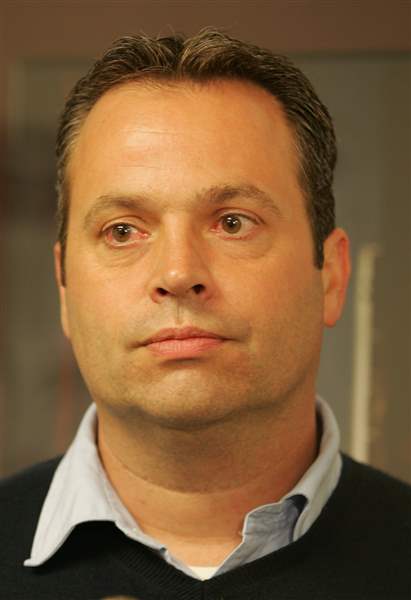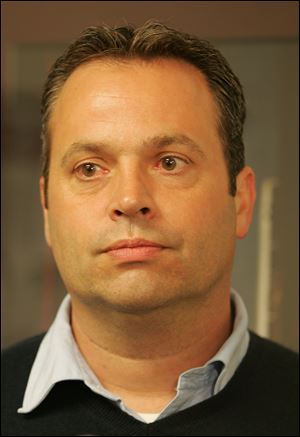
Taking off-duty officers out of bars questioned
3/28/2014
Wagner

Wagner
Anyone out at a Toledo bar this weekend might notice that the police officer who is usually posted up in the parking lot is missing.
A directive from Chief William Moton was sent out Wednesday afternoon immediately terminating off-duty police work at bars, nightclubs, and taverns — any business where alcohol sales are the primary source of revenue.
“It's actually our policy,” police Sgt. Joe Heffernan said. “We have made exceptions to this rule in the past, and those exceptions, for the most part, have been pulled.”
The notice to officers states that the chief can still grant exceptions to the rule if officers are asked to work special events — like festivals — where a liquor license is required.
Sergeant Heffernan said there was no incident that prompted the reinstatement of the policy, which has been enforced periodically since the late 1970s.
The off-duty officers who work the security projects at bars were limited to the parking lot unless a major incident occurred inside a bar. The officers wore their full uniforms and carried their guns and badges.
The officers were paid by the bar owner, not the police department. They generally earn about as much as they would, on an hourly basis, while on duty.
Dan Wagner, president of the Toledo Police Patrolman's Association, said half of all off-duty work is done at bars.
Since the notice was handed down, dozens of officers have called Mr. Wagner to ask why the projects were ended and to express concern about earning less money.
Mr. Wagner said pulling officers out of the bar scenes is a bad idea.
“Officers presence at these establishments prevents a lot of crime from occurring,” Mr. Wagner said.
Mr. Wagner also said officers who do work the off-duty projects oftentimes are able to provide information that leads to arrests.
An officer who had worked at Chuck's On Monroe recognized from surveillance video the man who is now charged with assaulting William Moore, 66, a cab driver, as a regular patron. Mr. Moore died of his injuries days after the assault. The suspect came back to the bar while the officer was working off duty, the officer talked to the man, found out who he was, and relayed that information to investigators, which led to the arrest of Curtis McDuffey, Jr., 31, of 2734 Wayman Palmer Dr., Mr. Wagner said.
In 1998, then-Toledo police Chief Mike Navarre presented a report to city council that stated terminating off-duty work at bars was “the right thing to do,” citing possible conflicts-of-interest.
Officers are sometimes called to testify at liquor-license hearings and, if that officer has been employed by the bar they are to testify against, there could be a bias, the report states.
Sergeant Heffernan said officer safety also was considered in the decision to terminate bar work.
“If you're out there in a parking lot by yourself, you can have guys coming out and get into a fight and guns come out and the fight escalates. That's a dangerous situation for that officer,” the sergeant said. “If there's a problem, the bars can call 911 and we'll still come. We're not going to not come, they'll just be on-duty officers coming with back-up and the appropriate number of officers.”
Ending off-duty bar security projects will put additional stress on the thin levels of manpower and adversely affect response time to lower-priority calls, Mr. Wagner said.
Bar owners and managers could hire additional private security to replace the police officers, Sergeant Heffernan said.
A Lucas County Sheriff's Office policy states that deputies cannot work off duty at bars or in their parking lots.
Contact Taylor Dungjen at tdungjen@theblade.com, or 419-724-6054, or on Twitter @taylordungjen.